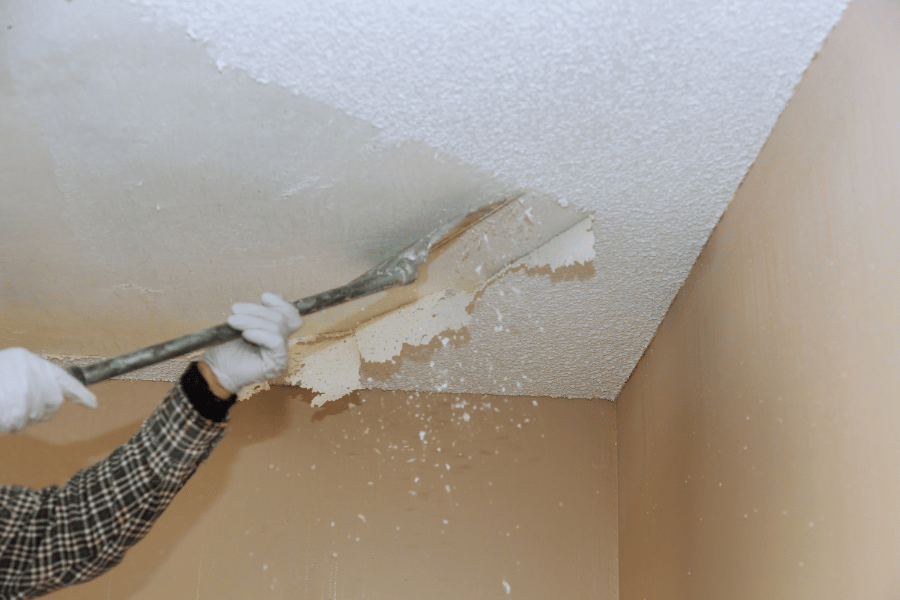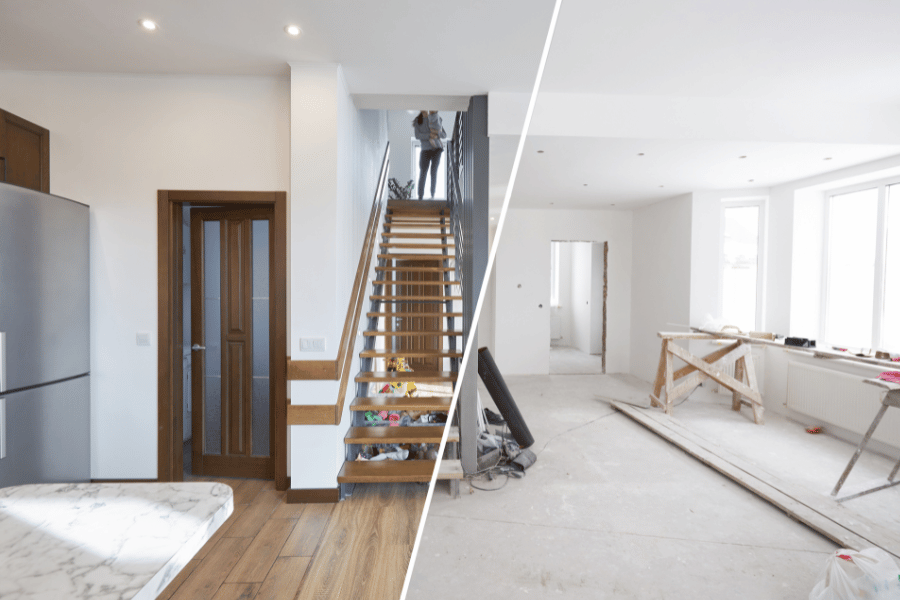Cost of Removing a Popcorn Ceiling
How much does it cost to remove a popcorn ceiling? Follow along as we discuss what popcorn ceilings are, how to remove them, and the overall cost.
Popcorn ceilings, also known as acoustic or textured ceilings, were a popular design choice from the 1950s through the 1980s. While they served practical purposes like hiding imperfections and reducing noise, today's homeowners often view them as outdated and undesirable.
Removing popcorn ceilings is known to be time-consuming and tedious. However, most homeowners go through the hassle of removing them rather than living with them.
The main reason popcorn ceilings are removed is that they're outdated. Today's ceilings are smooth, some with beautiful architecture that you can't get with popcorn ceilings.
If you're living in Raleigh with popcorn ceilings and considering removal, this comprehensive guide will help you understand costs, methods, and important considerations.
Let's discuss how much it costs to remove a popcorn ceiling.
1. Average Cost of Popcorn Ceiling Removal
Removing popcorn ceilings can either be an easy task or a complicated one. The size of your home widely affects the cost.
The average cost for popcorn ceiling removal is $1,997, but most homeowners spend anywhere from $933 to upwards of $3,074, depending on the project.
DIY Costs:
- Materials and supplies: $200 - $500 for an average home
- Tool rental (if needed): $50 - $150
- Asbestos testing: $200 - $600
Keep in mind that Raleigh's competitive market and local labor costs can influence these prices. Always get multiple quotes from licensed contractors in the area.
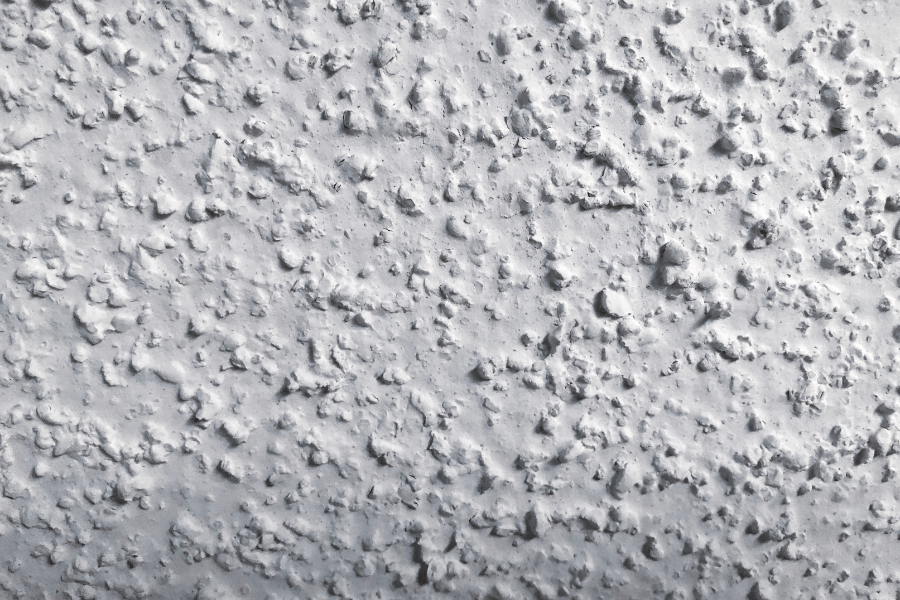
2. DIY Popcorn Ceiling Removal
If you decide that you'd like to upgrade your home's ceilings and get rid of the bumpy popcorn look, you may want to tackle the project on your own. Depending on the size of your home, it could take anywhere from a few hours to a few days to complete your project.
While challenging, removing popcorn ceiling yourself can save thousands of dollars. Here's the complete process:
Step 1: Remove and Protect Furniture
- Clear the room completely or move furniture to the center and cover with plastic sheeting
- Remove ceiling fans, light fixtures, and outlet covers
- Cover floors with plastic drop cloths and tape edges securely
- Ensure adequate ventilation by opening windows
Step 2: Test for Asbestos (Critical Step)
Asbestos is a carcinogenic mineral of flexible fibers resistant to heat, electricity, and corrosion. Asbestos was popular before the 1980s because it was affordable, strong, and fireproof.
Although it has benefits, it is shown that asbestos exposure comes with significant health issues. You can contact your local health department to determine who would like to get a sample of your ceiling tested.
Before any removal work begins, you must test for asbestos. Homes built before 1980 are at higher risk.
- Purchase an asbestos testing kit or hire a professional inspector
- Collect samples from multiple areas of the ceiling
- Wait for lab results before proceeding
- If asbestos is present, stop immediately and hire certified professionals
Step 3: Spray Your Ceiling
After you've removed your furniture and tested the ceiling for asbestos, you can get started. The first step in the removal process is spraying your ceiling; you can use a garden sprayer if need be.
- Mix warm water with a small amount of dish soap in a spray bottle
- Spray sections of ceiling (about 4x4 feet at a time)
- Allow water to penetrate for 15-20 minutes
- The texture should soften and become easier to scrape
- Work in manageable sections to prevent the ceiling from drying out
Step 4: Scrape the Texture
It's time to remove the popcorn ceiling. Use your putty knife to scrape the texture off, careful not to gouge or puncture the ceiling. Do this until all of the surface is removed.
- Use a wide putty knife or ceiling scraper
- Work at a 30-degree angle to avoid gouging the drywall
- Scrape with steady, even pressure
- Catch falling debris with a large drop cloth or tarp
- Re-spray areas that have dried out
Step 5: Patch and Repair
As mentioned, popcorn ceilings can hide cracks, poor craftsmanship, screws, etc. After you've removed all of the texture, you may notice a few areas that need repairing or patching. Take the time to do this now to have a smooth ceiling.
- Inspect the ceiling for damage, nail holes, or gouges
- Apply joint compound to imperfections
- Sand smooth once dry
- Prime any bare drywall areas
Step 6: Paint
Now we make the ceiling pretty. After you've removed the texture and patched up any problem areas and the ceiling, give it a fresh coat of paint.
- Apply a high-quality primer designed for ceilings
- Use a premium ceiling paint for the best finish
- Consider hiring professionals for this step if you want perfect results
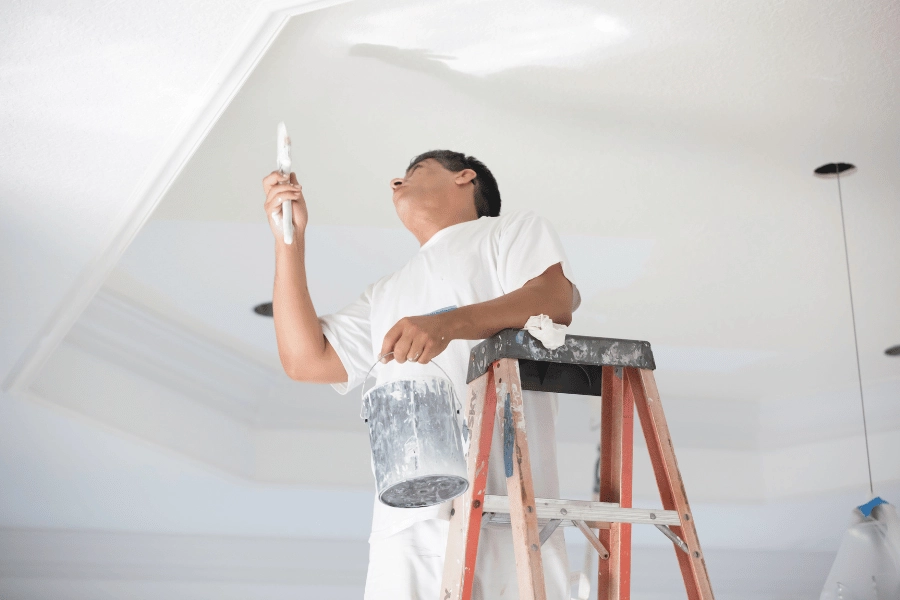
3. Covering Your Popcorn Ceiling
Another way to remove the appearance of a popcorn ceiling in your home is to cover it with either drywall or wood. The average cost of hiring a professional ranges from $10 to $20 per square foot.
For larger rooms, hiring a professional drywall contractor is recommended. For smaller jobs, you can opt to do it yourself, but you must know how to use a drywall knife and have experience with hammers and painting.
Drywall Installation
- Cost: $2.00 - $4.00 per square foot installed
- Benefits: Creates a perfectly smooth surface, adds insulation value
- Considerations: Reduces ceiling height by 0.5-0.75 inches, requires professional installation for best results
Wood Planks or Beadboard
- Cost: $3.00 - $8.00 per square foot, depending on material quality
- Benefits: Adds character and warmth, hides imperfections completely
- Considerations: Requires proper moisture considerations in bathrooms/kitchens, may need additional structural support
4. Factors That Can Affect Removal Cost
Understanding what drives costs helps you budget effectively and make informed decisions:
Room Size and Layout
The size of your home and the size of the project can significantly affect the removal cost.
- Larger spaces cost more in materials and labor but often have better per-square-foot pricing
- Complex layouts with multiple angles, slopes, or architectural features increase labor time
- High ceilings (over 9 feet) require special equipment and increase safety risks
Labor Market Conditions
- Raleigh's growing population has increased demand for skilled contractors
- Seasonal variations affect pricing (spring and summer typically see higher rates)
- Contractor availability can impact both timing and cost
Ceiling Complexity
The more complex the removal will be, the more professionals will charge. For example, if your ceiling contains lead or asbestos, they will charge more for the additional care and precautions.
They may also charge more for high ceilings because they need more tools. A project can also become more complex if the ceiling has been painted, as it is harder to remove.
- Flat ceilings: Easiest and least expensive to address
- Vaulted or cathedral ceilings: Require special equipment, increase labor time by 25-50%
- Ceilings with built-in lighting: Electrical work adds complexity and cost
- Water damage or structural issues: May require additional repairs before or during removal
Disposal of Debris
If you hire a professional, they are responsible for disposing of and removing debris. You can often put debris into your regular trash, but if it contains hazardous substances, it must be disposed of differently and can cost you anywhere from $150 to $170.
Asbestos Removal
Because asbestos can cause health issues, it needs to be removed. Removal can cost anywhere from $5 to $20 per square foot, but ultimately depends on the size of your room, the amount present, and the location.
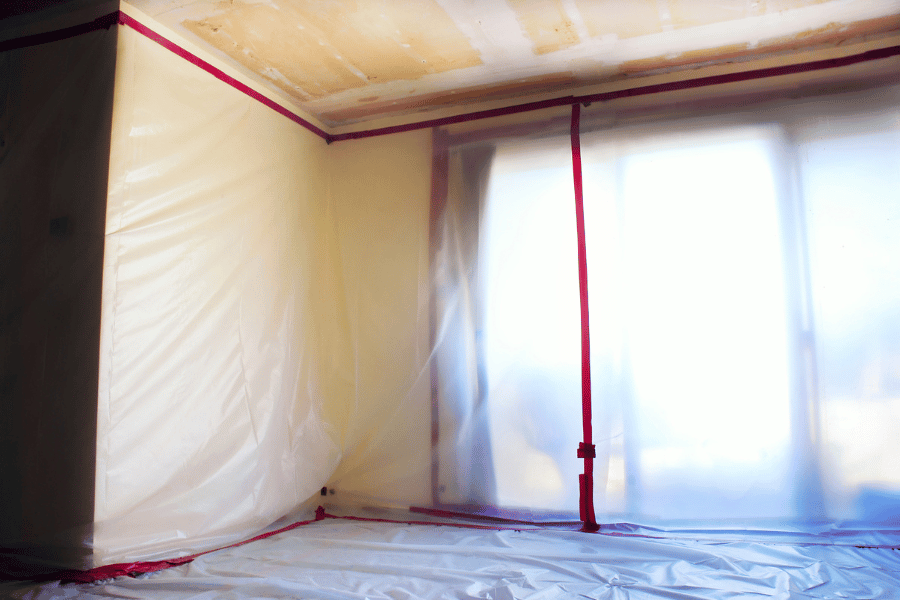
Location
Think of supply and demand. The cost will be higher in locations where popcorn ceiling removals are in high demand, yet have few companies. In areas where companies are abundant, the price will be lower.
- Older neighborhoods (like Oakwood or Cameron Village) often have asbestos concerns
- Historic districts may have additional regulations or requirements
- Newer developments typically have easier removal processes
5. Benefits of Removing Popcorn Ceilings
Increased Home Value
Since popcorn ceilings are seen as outdated, many homeowners don't want to purchase a home with a popcorn ceiling because they want to avoid the hassle of removing it. Removing the popcorn texture can also increase your resale value.
Recent studies suggest that removing popcorn ceilings can increase home value by 2-5%. In Raleigh's competitive market, this translates to:
- Average home value increase: $5,000 - $15,000
- Faster sale times when listing your home
- Broader appeal to potential buyers
Improved Aesthetics and Lighting
Popcorn ceilings can cast shadows and create uneven lighting in your home. If you can afford the removal, some homeowners have installed drywall over the texture to solve the problem.
Popcorn ceilings are seen as dated now, so most appreciate a clean and smooth-looking ceiling over the texture. It opens up the house and makes it brighter.
- Modern, clean appearance that complements contemporary design trends
- Better light reflection, making rooms appear brighter and larger
- Easier to coordinate with various decorating styles
- Eliminates dust and cobweb collection points
Health and Maintenance Benefits
Removing a popcorn ceiling has a couple of health and maintenance benefits that can improve the daily lives of homeowners.
- Easier to clean and maintain
- Better air quality (no texture to trap dust and allergens)
- Eliminates concerns about asbestos exposure (once properly removed)
- Reduces painting time and complexity for future updates
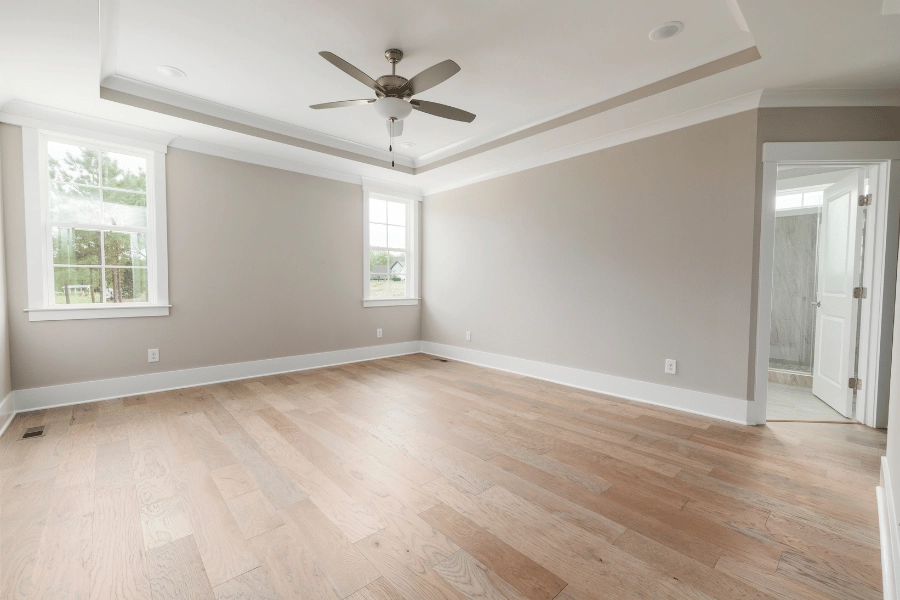
6. DIY vs. Professional Removal
Often, the removal of popcorn ceilings is achievable by most DIYers. However, you will have to consider the time it will take, the amount of labor, and the size of the home.
If no asbestos is found, you may opt to do it yourself. It will be messy and time-consuming, but it is a project that can be done independently. Please also ensure you have a high enough ladder or purchase one beforehand.
Hiring a professional will be your best option if you need more preparation for the mess or labor. They will be able to complete the project faster and remove debris for you, making cleaning up and moving furniture back easier.
Choose DIY When:
- Your ceiling tests negative for asbestos
- You have experience with home improvement projects
- You have adequate time (expect 2-4 days per room)
- The ceiling height is manageable (under 10 feet)
- You're comfortable with messy, labor-intensive work
- Budget constraints make professional removal prohibitive
Hire Professionals When:
- Asbestos testing comes back positive
- You lack time or physical capability for the demanding work
- The ceiling has complex architectural features
- You want guaranteed results and warranties
- The project involves multiple rooms or your entire home
- You're planning to sell soon and need professional-quality results
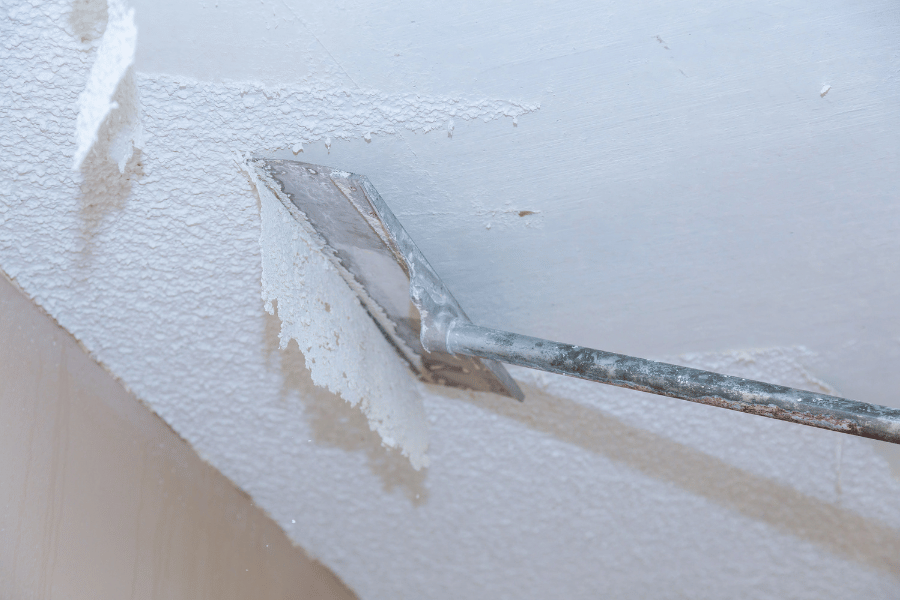
7. Choosing the Right Contractor
When hiring professionals in the Raleigh area, consider:
Essential Qualifications
- North Carolina general contractor's license
- Current liability insurance and workers' compensation
- Asbestos certification (if applicable)
- Local references from recent projects
- Better Business Bureau rating and reviews
Questions to Ask Potential Contractors
- How do you handle dust containment and cleanup?
- What's included in your quoted price?
- How do you address unexpected issues like damaged drywall?
- What warranty do you provide on your work?
- Can you provide references from recent Raleigh projects?
Methodology
Data was sourced from Angi and the Home Depot to determine the cost to remove a popcorn ceiling.
FAQs
Is it cheaper to remove the popcorn ceiling or cover it with drywall?
Covering your popcorn ceiling is the best option if you are on a tight budget. The cost to cover is significantly cheaper than removing it, including hiring a professional.
What is the cheapest method of covering popcorn ceilings?
Skim coating. Skim coats act like a primer that gives the ceiling a fresh and smooth surface. This method is also cheaper because it does not require a professional.
How long does it take to remove popcorn ceilings?
If you are experienced or a professional, it takes an average of 20 hours to remove 500 square feet of popcorn ceiling. It could take longer if you choose to do it yourself and need to gain experience.
Why should I remove my popcorn ceiling?
One of the main reasons for removing popcorn ceilings is that it hides flaws and potential issues. You may not notice cracks and leaks, which could lead to significant damage.
Another reason you should consider removing the popcorn ceiling is to increase the value of your home when selling and make it more appealing to buyers.
Why was the popcorn ceiling style used?
In the past, popcorn ceilings were popular because it was easy and cheap. It also absorbed sound/reduced noise, and covered up flaws that people needed to be more willing to fix.
How Much Does it Cost to Remove Popcorn Ceiling - Final Thoughts
Popcorn ceiling removal is a significant home improvement project that can dramatically improve your living space and home value. Whether you choose the DIY route or hire professionals depends on your specific situation, budget, and comfort level with complex home improvement tasks.
Remember that in Raleigh's competitive real estate market, updated homes with modern finishes command premium prices and sell faster. If you're planning to stay in your home long-term, the improved aesthetics and easier maintenance make removal worthwhile. If you're preparing to sell, the investment often pays for itself in increased home value and marketability.
Before starting any removal project, always prioritize safety by testing for asbestos and following proper procedures. When in doubt, consult with local professionals who understand Raleigh's specific requirements and can ensure your project is completed safely and effectively.
Whether you want to sell your home or modernize your living space, we are here to help you navigate the Triangle's competitive real estate market.
